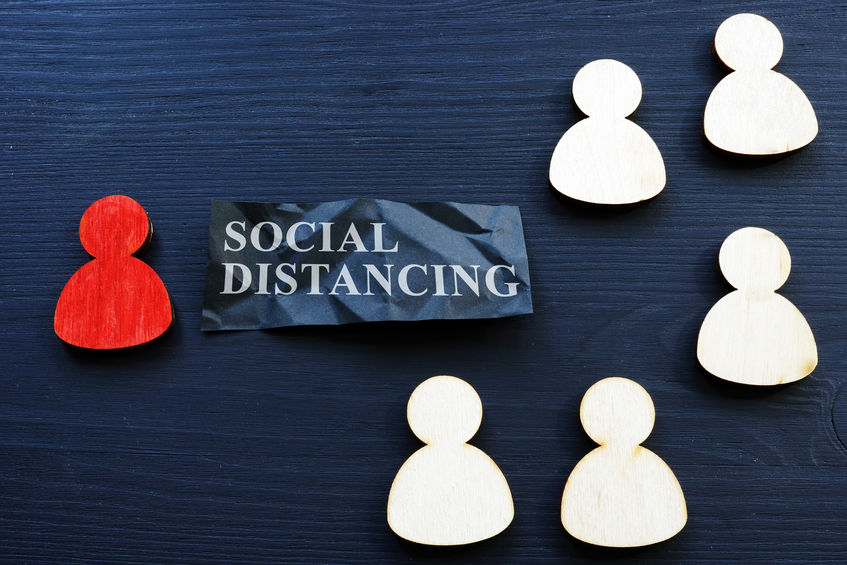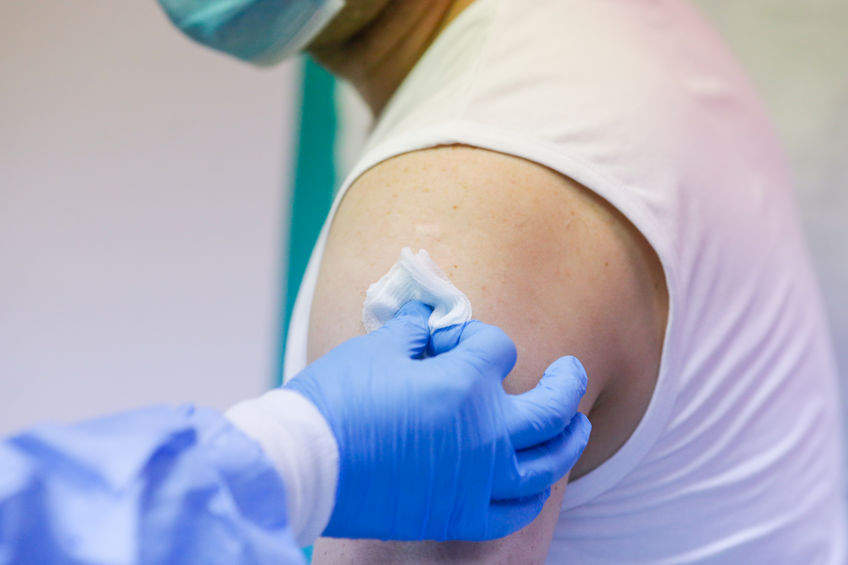Since as recently as December 2020, mass vaccinations have been taking place across the world thanks to the development of multiple COVID-19 vaccines. According to the World Health Organization (WHO), 175.3 million vaccine doses have been administered as of 15 February 2021, with roughly 7 vaccines (across 3 platforms) being used. Following the development of vaccines that are deemed safe and efficacious, many hope that we will see further administrations rolling out across the globe throughout the year. The result of the mass rollout means that more and more people are achieving successful vaccinations from the deadly virus.
For many, vaccination is a ticket to safety from the pandemic as well as the first step in reforming the world as we knew it. However, the process of vaccinating the entire world will take time and for those having already received the vaccination, guilt is starting to weigh on many individuals’ shoulders. What’s more, envy stemming from groups who have not yet received vaccination is also on the rise. There is a rift forming between the vaccinated and those still to be vaccinated, and in this article, we hope to provide more information about the COVID-19 vaccine as well as shed light on how to cope with subsequent vaccine guilt after receiving it.
What are COVID-19 Vaccines and How Do They Work?
Potential COVID-19 vaccines are being developed around the world to help an individual’s immune system naturally and safely identify and block the SARS-CoV-2 virus strain that causes COVID-19. While the intent of the vaccine is the same for all those being developed, scientists are discovering new ways of tackling the pandemic and are providing solutions that act in a variety of beneficial ways. For example, some protein-based vaccines mimic the virus to trigger an immune response while other non-disease spreading viruses are administered as a platform to produce coronavirus proteins to generate an immune response.
The thing to remember is that all vaccines aim to support one’s immune system. This is, after all, the area of the body responsible for fighting the virus. This is why immune support should be encouraged even before one receives a vaccine. Investing in immune-boosting supplements can help boost your immune system and improve the body’s ability to fight disease and viruses. While safety is not guaranteed upon consumption, the use of these nutritional aids may help minimize the risk of contracting the virus before receiving a vaccination. Coupling nutritional supplementation with a healthy diet will only further benefit the immune system in the long run, aiding your ability to fight infection.
What Are The Benefits Of Getting Vaccinated?
Receiving a COVID-19 vaccine is critical to protecting yourself against infection and protecting others by curbing the spread of the virus. The reason for being vaccinated is so that your immune system can effectively recognize and inhibit the impact of the virus. In saying so, we cannot actively and effectively operate in public without receiving the vaccine. While vaccines are not foolproof and there is currently minimal evidence that vaccines will completely remove the risk of contracting the virus, daily reports are suggesting that vaccine administration can help reduce the risk of suffering from COVID-19. Another reason to consider vaccination is that it will likely protect others who are more vulnerable from the spread of the virus. Finally, the elderly and those suffering from chronic conditions and comorbidities can minimize their current associated health risks by receiving the immune-boosting vaccination.
As immune support is such an important part of successfully fighting the COVID-19 virus, those who have not yet been eligible to receive the vaccine may want to seek alternative immune-boosting supplementation for the time being. There are many nutritional products on the market capable of boosting the immune system and reducing health risks, and these may be used in conjunction with other safety protocols to protect oneself before vaccination.
How Do I Receive A COVID-19 Vaccine?
Countries around the world are responsible for their own COVID-19 vaccination administration schemes, with the WHO paving the way for successful vaccination programs and assisting country leaders responsibly roll out their plans. Planning tools and technical guidance provided by the organization’s Strategic Advisory Group of Experts is assisting world leaders with their programs and guiding them on the best practices when rolling out mass vaccinations.

Currently, the process regarding receiving a vaccine involves identifying, through extensive internet research, how one can apply or register for vaccination administration within their local area. Another efficient way of discovering this information is by contacting your general health practitioner for advice. These professional experts will be available to assist you further with regards to pinpointing the registration process, or even determining if a vaccine is available in your area.
Do as much research online to find out whether or not vaccinations are underway within your town, district, or state. Up until receiving a COVID-19 vaccination, it is imperative to maintain social distancing and practice all the safety protocols we have been doing this past year such as wearing a mask and using proper mask hygiene.
Understanding COVID-19 Vaccine Guilt
Despite billions of individuals around the world still in need of a COVID-19 vaccine, many report that world leaders along with the WHO are ramping up their mass vaccine administration efforts. As such, more and more people are receiving the vaccine daily and, despite the elation of finally receiving medical protection from the virus, many among those vaccinated are reporting feelings of guilt.
Whether it’s regretting your anticipation for the vaccine, dealing with feelings that you do not deserve the vaccine over others, or believing that you are receiving a portion of a limited supply of vaccines, there is an increasing feeling among vaccinated individuals of shame, guilt, and regret.
However, it is important to understand that vaccination prioritization is allocated according to groups as stipulated by government bodies. For example, those 70 and older as well as frontline essential workers are often deemed the first to receive vaccinations. In most cases, the risk level is the key criteria in allocating vaccination administration but this is only subject to large groups of people rather than an individual’s specific need for the vaccine. If you are encouraged to receive a vaccine then it may be because you fall into a category deemed essential to be administered at present. Accepting a vaccine is not a shameful act but rather a necessary one, as per stipulations outlined by organizational bodies.
There is the option of declining a vaccine, however, this comes with its own set of consequences and emotional triggers. For example, declining a vaccine means that you are both at risk of contracting COVID-19 and spreading it to other people. It also means you may fall into the category that represents the percentage of people in your prioritization group that did not receive the vaccine. This may skew data showing with a harmful angle being spun that the vaccine is dangerous.
Rather than harboring feelings of guilt, individuals should make positive strides to encouraging vaccination administration through contacting local representatives and supporting more nuanced distribution systems tailored to an individual’s need for the vaccine. Furthermore, one should action positive steps to promoting vaccination among those in their community. These inspiring tactics are just a few ways you can turn vaccination guilt into an uplifting attitude that will help fight the COVID-19 pandemic.

